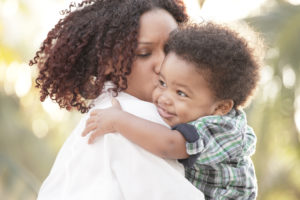LSS receives $100,000 Vaping Prevention and Treatment grant from Wisconsin DHS
For Immediate Release
LSS receives $100,000 Vaping Prevention and Treatment grant from Wisconsin DHS
Funding will go to programs in four school districts throughout the state of Wisconsin
WEST ALLIS, Wis., Feb. 16, 2024 – Lutheran Social Services of Wisconsin and Upper Michigan (LSS) was awarded a $105,354 grant from the Wisconsin Department of Health Services (DHS) to reduce and prevent vaping among adolescents, an activity that has seen a steep rise in recent years.
LSS will use the funds over two years to endow programs in three school districts in western Wisconsin and one in Milwaukee County. The project will include three primary programs: small group intervention, parent intervention, and student-led advocacy groups.
With small group intervention, schools will refer students that have struggled with vaping use. LSS staff will lead a discussion using evidence-based education in an environment that empowers change instead of punishing mistakes.
Additionally, LSS will empower parents by providing access to an online support platform. This will give parents resources and education for working with their child to either prevent or stop substance abuse.
Finally, students will have the opportunity to create their own student-led events and programs that promote healthy behavior. LSS and school staff will support youth in taking leadership roles, and the grant will provide funding for student-led events. Héctor Colón, LSS President & CEO, believes empowering youth is the key to lasting change:
“LSS strives to support the youth and families in our communities,” said Colón. “This project allows us to reach youth and empower them to make choices that will set them up for success.”
Colón says the grant is a good start, but stresses more must be done to stem the tide of youth vaping:
“Addressing this issue is going to take effort from a variety of places, schools, parents, and community organizations. LSS tries to bring together as many as possible, but the issue of ease of access still needs addressing.”
Funding for the grant comes from a $14.7 million settlement between Wisconsin and JUUL Labs, a leading manufacturer of vaping devices. The settlement addresses harm caused by JUUL’s predatory marketing practices.
ABOUT LSS
Lutheran Social Services of Wisconsin and Upper Michigan (LSS) is made up of nearly 800 Servant-Leaders including licensed therapists, professional social workers and counselors, and certified peer specialists located throughout our two-state reach. Every year, our colleagues strengthen families, inspire recovery, and empower independence & belonging for nearly 30,000 individuals and families at every stage of life. Driven by the belief in the infinite worth of every person, LSS provides affordable housing & homelessness services; public adoption & foster care; long-term care & disability services; refugee resettlement; residential treatment for substance use disorder & mental illness; and additional supportive community-based services.
###
MEDIA CONTACT
George Kmetty, Public Relations Specialist
George.Kmetty@lsswis.org
262-693-6825
Lutheran Social Services Engages in Statewide Collaborative Pilot for High-Needs Youth
Written by Heather Yaeger, LSS Regional Director
Wisconsin Residential Care Center (RCC) capacity has decreased by 32% since 2014, forcing more than 250 youth from 46 counties to receive services out of state. Lutheran Social Services of Wisconsin and Upper Michigan (LSS) is fortunate to be a member of the Wisconsin Association of Family & Children’s Agencies (WAFCA), where we have opportunities to advocate and collaborate with the county, state and provider agencies to increase our impact.
We know children are served best when family connections are maintained and those that know them the best are nearby. We also have experienced that no provider or agency in Wisconsin successfully assists families by themselves.
“Children suffering from trauma or struggling with a mental health condition or disability need compassionate care as close to home as possible,” said Emily Coddington, Associate Director for WAFCA. “We understand that this is an incredibly difficult time for all involved – placing agencies, children and families, and service providers alike – and also believe the children we are trying to serve through this pilot deserve nothing less than our collective best efforts. We can each make a difference in the life of a child if we all commit to being part of the solution.”
 LSS joined WAFCA’s newly formed pilot strategy, Resource Connection Sessions, in response to rising client numbers and needs. WAFCA initiated the pilot in April, which seeks to engage system consultant expertise and representation from the entire continuum of care in Wisconsin, helping locate in-state treatment and services for children and families.
LSS joined WAFCA’s newly formed pilot strategy, Resource Connection Sessions, in response to rising client numbers and needs. WAFCA initiated the pilot in April, which seeks to engage system consultant expertise and representation from the entire continuum of care in Wisconsin, helping locate in-state treatment and services for children and families.
I believe the providers on the calls, such as LSS, hear firsthand the pressures our county partners are under and the limited resources and services they have. It has given us a chance to think out of the box and be creative in service provision. We take what we learn through these sessions and then strategically plan how we want to meet this need in the future.
This collective agency think tank is innovative and one example of how LSS and Wisconsin are adapting to meet families in the community. I sincerely thank the counties we have heard from thus far for openly sharing the needs regarding specific cases. LSS recognizes that change takes time, but we aren’t going to shy away from it just because it is difficult.
Related LSS Podcast Episode:
Demystifying Social Services: Pathways Beyond Healthcare That Lead to Sustainable Well-Being for All
